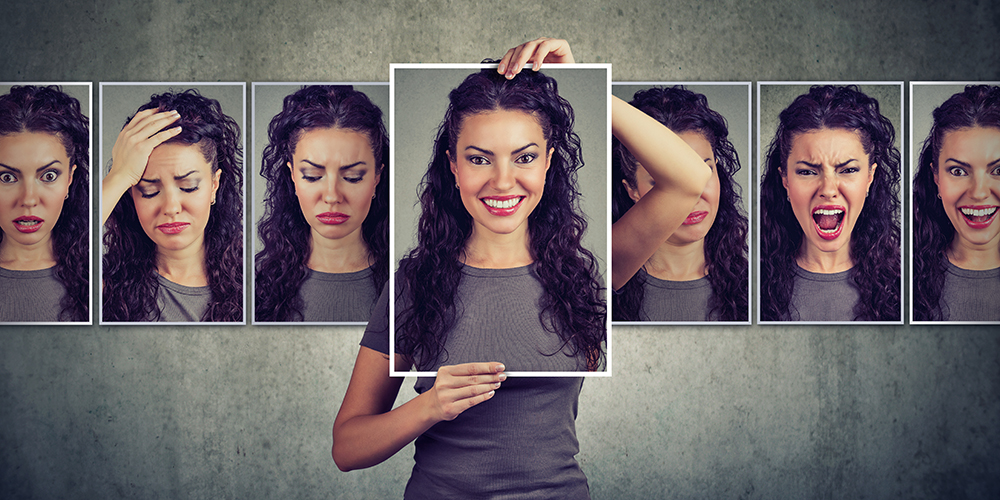Bipolar disorder is a chronic mental health disorder. This condition affects millions of people or an estimated 4.4% of all U.S. adults at one point or another in their lifetime.
Bipolar Disorder in Our Society
The prevalence of bipolar disorder means that the majority of Americans will be impacted either directly or indirectly by this condition throughout their lives. Given that more than 50% of people will be diagnosed with a mental disorder or illness at least once in their lives, it’s essential that the stigma surrounding it is minimized and hopefully eliminated one day.
Bipolar disorder is characterized by strong changes in mood and energy levels. These mood swings can lead to a lack of disinterest in life and feelings of extreme hopelessness and despair. Many people sadly suffer silently from bipolar disorder, because they don’t realize the severity of their situation or are uncomfortable with coming forward. No matter how old they are or what they do, bipolar disorder can have a profound impact on their lives. Such significant shifts in mood can make it difficult for sufferers to fulfill their daily responsibilities. This impact may be across work, school and personal relationships.
The Correlation of Bipolar Disorder and Technology Addiction
In the modern 21st century, technology can make a lot of things possible, but it’s easier than ever to become dependent on the web. With a phone in the palm of your hand and a computer easily within reach, people can become accustomed to 24/7 access and connection. Now, medical professionals have uncovered a link between technology addiction and bipolar disorder. The two go hand-in-hand more often than you’d think. People who suffer from bipolar disorder may use technology as a means of distraction and coping for their uncontrollable emotions.
If you or someone you know has bipolar disorder, perhaps you’ve noticed that technology can make these mood swings feel a bit better and lessen the impact of such a range of emotions. This is a large part of why bipolar disorder and technology addiction are correlated. If someone is feeling down due to bipolar disorder, screen time can boost their mood and give them something else to focus on. While technology is good in some ways, too much of it can have a detrimental impact on one’s health and social interaction.
Anyone with bipolar disorder is encouraged to seek medical attention and treatment so that they can get better. A person who can’t cope without their TV, phone, computer, or internet access may find it increasingly hard to deal with life’s ups and downs. Much like bipolar disorder, technology addiction can lead to uncomfortable and unpleasant mood swings that may require professional medical attention and assistance. As people examine the underlying causes of bipolar disorder and technology addiction, it becomes increasingly clear that bipolar disorder and technology addiction can be linked and contribute to one or the other. Internet Addiction Disorder (IAD) is becoming more common, with rates ranging from 1.5% to as high as 8.2% of people in America and Europe. Both bipolar disorder and technology addiction are on the rise, and it’s crucial if you’re impacted by these conditions you need to discuss both of them with a doctor so that they are treated together.
Getting Treatment for Both Bipolar Disorder and Tech Addiction
Anyone who has experienced addiction firsthand or knows someone who has been addicted understands that this disease works its way into every facet of a person’s life. The same can be said for technology addiction. Thankfully, there are highly reputable options out there for treatment for both bipolar disorder and tech addiction. For those wondering what the treatment for bipolar disorder and associated conditions like tech addiction are – it involves therapy. It also involves the council, life coaching, and medication. It’s in the best interests of the patient to treat these two conditions at the same time.
Your mental and emotional health can benefit significantly from simultaneous treatment that targets bipolar disorder and tech addiction. Recovering from addiction is a big task, but if you can work with the licensed professionals to back away from your harmful habits, you’re more likely to be successful. The same idea can be applied to treatment for bipolar disorder. Both conditions require a dedication to treatment and a desire and determination to improve one’s health. With treatment staff expertly addressing bipolar disorder and the associated tech addiction and vice versa, there’s a higher chance of successful recovery.
Let Us Help You
When you or someone you know is overwhelmed and discouraged by bipolar disorder, technology addiction, or depression, it’s time to seek professional medical help. Bipolar disorder and treatment can help people regain a sense of control and confidence in their lives while opening up doors for a bigger, brighter, and more beautiful future. Bipolar disorder and tech addiction do not have to ruin your life, as these conditions can be successfully treated and managed with targeted treatment from quality treatment centers.
Please contact us if you are struggling with bipolar disorder and technology addiction. We are ready to help and provide treatment that could change your life for the better.
Sources: https://www.nimh.nih.gov/health/statistics/bipolar-disorder.shtml
https://www.cdc.gov/mentalhealth/learn/index.htm
https://www.ncbi.nlm.nih.gov/pmc/articles/PMC3480687/


